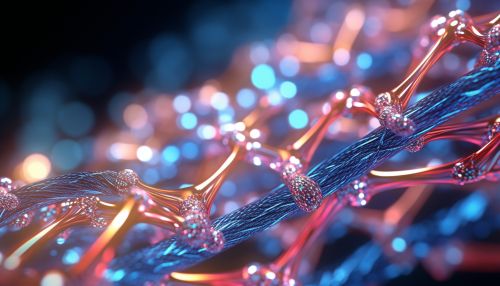Non-coding RNA
Introduction
Non-coding RNA (ncRNA) is a type of RNA that does not encode a protein, but has functions of its own. They are a critical part of the genetic code, and their study has revolutionized our understanding of how genes are regulated.


Classification
Non-coding RNAs can be classified into two main types: housekeeping ncRNAs and regulatory ncRNAs. Housekeeping ncRNAs, such as rRNAs and tRNAs, are essential for normal cellular function. Regulatory ncRNAs, on the other hand, play a role in gene regulation and include miRNAs, siRNAs, and lncRNAs.
Housekeeping ncRNAs
Housekeeping ncRNAs are constitutively expressed and are necessary for basic cellular functions. They include rRNAs, tRNAs, snRNAs, and snoRNAs.
Ribosomal RNA (rRNA)
rRNAs are a component of the ribosome, the cellular machinery for protein synthesis. They make up about 80% of the total RNA in a cell.
Transfer RNA (tRNA)
tRNAs are responsible for bringing the correct amino acid to the ribosome during protein synthesis. Each tRNA molecule is specific for one amino acid.
Small Nuclear RNA (snRNA)
snRNAs are involved in splicing, a process that removes introns from pre-mRNA to produce mature mRNA.
Small Nucleolar RNA (snoRNA)
snoRNAs guide chemical modifications of rRNAs, tRNAs, and snRNAs.
Regulatory ncRNAs
Regulatory ncRNAs are involved in the regulation of gene expression at the transcriptional and post-transcriptional level. They include miRNAs, siRNAs, and lncRNAs.
MicroRNA (miRNA)
miRNAs are small ncRNAs that regulate gene expression at the post-transcriptional level by binding to the 3' untranslated region (3' UTR) of target mRNAs, leading to their degradation or translational repression.
Small Interfering RNA (siRNA)
siRNAs are involved in the RNA interference (RNAi) pathway, where they interfere with the expression of specific genes with complementary nucleotide sequences by degrading mRNA after transcription.
Long Non-Coding RNA (lncRNA)
lncRNAs are a diverse class of ncRNAs longer than 200 nucleotides. They regulate gene expression at various levels, including chromatin modification, transcription, and post-transcriptional processing.
Function and Mechanisms
Non-coding RNAs have a wide range of functions and mechanisms, many of which are still being discovered. They play a crucial role in gene regulation, cellular differentiation, immune response, and many other biological processes.
Clinical Significance
Alterations in ncRNA expression have been associated with a variety of diseases, including cancer, neurological disorders, and cardiovascular diseases. As such, they have potential as diagnostic biomarkers and therapeutic targets.
